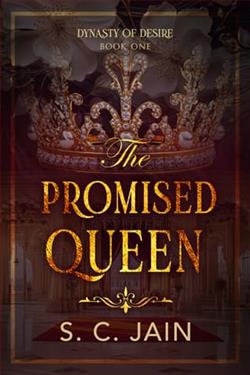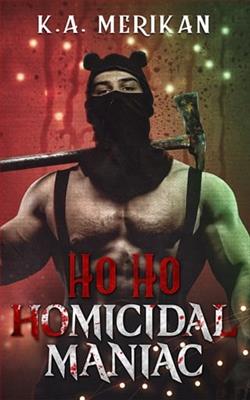Page 11 of Requiem (Delirium 3)
Gracie, I call to her. Unconsciously, Ive extended one arm, as though Im approaching a wild animal.
She freezes. I take another careful step toward her. She is gripping the stick in her fist so tightly, her knuckles are white.
Grace. I clear my throat. Its me, Hana. Im a friendI was a friend of your cousin, Lena.
Without warning, shes up on her feet and running, leaving the doll and the stick behind. Automatically, I break into a sprint and tear after her down the street.
Wait! I call out. PleaseIm not going to hurt you.
Grace is fast. She has put fifty feet of distance between us already. She disappears around a corner, and by the time I reach it, shes gone.
I stop running. My heart drums hard in my throat, and theres a foul taste in my mouth. I take off my hat and swipe at the sweat on my forehead, feeling like a complete idiot.
Stupid, I say out loud. Because it makes me feel better, I repeat, a little louder, Stupid.
Theres a titter of laughter from somewhere behind me. I spin around: no one. The hair pricks up on my neck; all of a sudden I have the feeling Im being watched, and it occurs to me that if Lenas family is here, there must be others, too. I notice that cheap plastic shower curtains are hung in the windows of the house across the street; next to it is a yard layered with plastic debristoys and tubs and plastic building blocks, but neatly arranged, as though someone has recently been playing there.
Feeling suddenly self-conscious, I retreat into the protection of the trees, keeping my eyes on the street, scanning for signs of movement.
We have a right to be here, you know.
The whispering voice comes from directly behind me. I whirl around, so startled that for a moment I cant speak. A girl has just emerged from the trees. She stares at me with wide brown eyes.
Willow? I choke out.
Her eyelids flicker. If she recognizes me, she doesnt acknowledge it. But its definitely herWillow Marks, my old classmate, who got pulled out of school just before we graduated, after rumors circulated that she had been found with a boy, an uncured, in Deering Oaks Park after curfew.
We have a right, she repeats, in that same urgent whisper. She twists her long, thin hands together. A road and a path for everybody . . . That is the promise of the cure. . . .
Willow. I take a step backward and almost trip over myself. Willow its me. Hana Tate. We had math together last year. Mr. Fillmores class. Remember?
Her eyelids flutter. Her hair is long and hopelessly tangled. I remember how she used to dye streaks of it different colors. My parents always said she would get into trouble. They told me to stay away from her.
Fillmore, Fillmore, she repeats. When she turns her head, I see that she has the three-pronged procedural mark, and I remember that she was pulled abruptly out of school just a few months short of graduation: Everyone said that her parents forced her into an early procedure. She frowns and shakes her head. I dont know . . . Im not sure . . . She brings her fingernails to her mouth, and I see that her cuticles are gnawed to shreds.
My stomach surges. I need to get out of here. I never should have come.
Good to see you, Willow, I say. I start to inch slowly around her, trying not to move too quickly even though Im desperate to break into a run.
All of a sudden, Willow reaches out and puts an arm around my neck, pulling me close, as though she wants to kiss me. I cry out and strain against her, but she is surprisingly strong.
With one hand, she begins feeling her way across my face, prodding my cheeks and chin, like a blind person. The feel of her nails on my skin makes me think of small, sharp-clawed rodents.
Please. To my horror, I find that I am almost crying. My throat is spasming; fear makes it hard to breathe. Please let me go.
Her fingers find my procedural scar. All at once, she seems to deflate. For a second, her eyes click into focus, and when she looks at me, I see the old Willow: smart and defiant and, now, in this moment, defeated.
Hana Tate, she says sadly. They got you, too.
Then she releases me, and I run.
Lena
Coral slows us down. She has no visible injuries, now that she has bathed and had various cuts and scrapes bandaged, but she is obviously weak. She falls behind as soon as we begin to move, and Alex hangs back with her. In the early part of the day, even though I try to ignore it, I can hear the ribbon of their conversation weaving up and through the other voices. Once, I hear Alex burst out laughing.
In the afternoon, we come across a large oak. Its trunk has been gouged and slashed with various lines. I let out a cry of recognition as soon as I see it: a triangle, followed by a number and a rudimentary arrow. Its Brams knife pattern, the specific series of markings he used during relocation from the northern homestead last year to mark our progress and help us find our way back in the spring.
This mark I remember specifically; it indicates the way to a house we came across last year, intact and inhabited by a family of Invalids. Raven must recognize it too.
Jackpot, she says, grinning. Then she raises her voice to the group. This way to a roof! There are whoops and exclamations. Just a week outside of civilization makes us crave the simplest things: roofs and walls and tubs full of steaming water. Soap.
Its less than a mile to the house, and when I see the gabled roof, covered in a fur of brown and tangled ivy, my heart leaps. The Wildsso vast and changeable, so disorientingalso make us lust for the familiar.
I burst out to Julian, We stopped here last autumn. During the journey south from Portland. I remember that broken windowsee how theyve patched it with wood? And the little stone chimney peeking up over the ivy.
I notice, though, that the house is more run-down than it was even six short months ago. Its stone facade is darker, coated with a slick surface of black mold that has webbed itself into the caulking. The small clearing around the house, where last year we pitched our tents, is overgrown with high brown grasses and thorned plants.
There is no smoke piping from the chimney. It must be cold inside the house with no fire going. Last autumn the kids ran out to intercept us when we were halfway to the front door. They were always outside, laughing and shouting, teasing one another. Now there is quiet and stillness, except the wind through the ivy, a slow sigh.
I begin to feel uneasy. The others must feel it too. Weve covered the last mile quickly, moving together as one large group, buoyed by the promise of a real meal, an indoor space, a chance to feel like humans. But now everyone falls silent.
Raven reaches the door first. She hesitates with a fist raised; then she knocks. The sound is hollow and overloud in the stillness. Nothing happens.
Maybe theyre out gathering, I say. Im trying to quell the panic that is building, the spiky sense of fear I used to get whenever I ran past the graveyard in Portland. Better go fast, Hana used to say, or theyll reach out and grab your ankles.
Raven doesnt answer. She puts her hand on the knob and turns. The door opens.
She turns to Tack. He unslings his rifle and passes in front of her into the house. Raven seems relieved that he has taken the lead. She removes a knife from the belt she wears on her hips and follows him inside. The rest of us flow in after them.
It smells terrible. A little light penetrates the darkness, spilling in from the open door and piercing the wooden slats that cover the broken window. We can just see the bare outlines of the furniture, much of it smashed or overturned. Someone lets out a cry.
What happened? I whisper. Julian finds my hand in the darkness and squeezes. Nobody answers. Tack and Raven move farther into the room, their shoes crunching on broken glass. Tack takes the butt of his rifle and slams it, hard, against the wooden slats in the window; they break apart easily, and more light flows into the room.
No wonder it smells so bad; there is food, rotted, spilling out of an overturned copper pot. When I take a step forward, insects scurry into the corners. I fight down a surge of nausea.
God, Julian mutters.
Ill check the upstairs, Tack says, at normal volume, which makes me jump. Someone clicks on a flashlight, and the beam sweeps over the littered floor. Then I remember that I, too, have a flashlight, and I fumble in my backpack for it.
I move with Julian into the kitchen, keeping the flashlight in front of me, rigid, as though it will protect us. There are more signs of struggle herea few smashed glass jars, more insects and rotting food. I draw my sleeve up to my nose and breathe through it. I pass the beam of light over the pantry shelves. They are still fairly well-stocked: jars of pickled vegetables and meats are lined neatly next to bundles of dried jerky. The jars are labeled with neat, handwritten script that identifies their contents, and I feel a sudden vertigo, a wild swinging, as I remember a woman with fire-red hair, bending over a jar with her pen, smiling, saying, Theres hardly any paper left at all. Soon well have to guess at whats what.
Clear, Tack announces. We hear him thudding back downstairs, and Julian draws me through the short hallway and into the main room, where most of the group is still assembled.
Scavengers again? Gordo asks gruffly.
Tack passes a hand through his hair.
They werent looking for food or supplies, I say. The pantrys still stocked.
Maybe it wasnt Scavengers at all, Bram says. Maybe the family just took off.
What? And trashed the place before they split? Tack toes a metal cup. And left their food behind?
Maybe they were in a hurry, Bram insists. But I can tell even he doesnt believe it; the atmosphere in the house is rancid, wrong. This is a house where something very bad has happened, and all of us can feel it.
I move toward the open door and step out onto the porch, inhaling clean, outside smells, scents of space and growth. I wish wed never come.
Half the group has already retreated outside. Dani is moving across the yard slowly, parting the grasses with a handlooking for what, I dont knowas though she is wading through knee-high water. From the back of the house I hear shouted conversation; then Ravens voice, rising above the noise. Get back, get back. Dont go down there. I said, dont go down there.
My stomach tightens. She found something.
She comes around the side of the house, breathless. Her eyes are shiny, bright with anger.
But all she says is, I found them. She doesnt have to say that theyre dead.
Where? I croak.
Bottom of the hill, she says shortly, then she pushes past me, back into the house. I dont want to return inside, to the smell and the darkness and the fine layering of death that covers everythingthats what it is, that wrong-thing, that evil silencebut I do.
What did you find? Tack asks. Hes still standing in the middle of the room. Everyone else surrounds him in a semicircle, frozen, quiet, and for a moment, when I reenter the room, I have the impression of statues, gripped in gray light.















